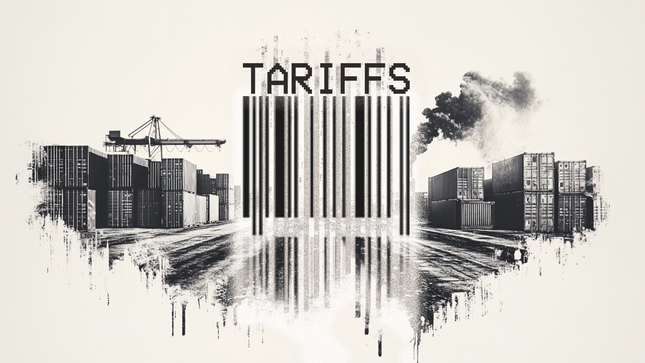How you make money trading and investing in the markets is no different than how you make money buying and selling anything in life and this basic concept never changes. The only difference between Costco and JP Morgan is what they sell, not how they operate or make and lose money. Costco buys the products at wholesale prices, marks them up and sells to us at retail prices. JP Morgan gets stocks and bonds at wholesale prices, marks them up and sells to us at retail prices. ![]() It is really the exact same business model, just a different product. Having this mentality when short term trading for income or investing for long term wealth is the key to creating that pension or pay check from the financial markets.
It is really the exact same business model, just a different product. Having this mentality when short term trading for income or investing for long term wealth is the key to creating that pension or pay check from the financial markets.
The key for either group is to get the public to believe that the retail prices they are offering are a good deal so that the public will buy and pay those retail prices. Marketing plays a big role in this game for the Costco’s of the world, same with JPM. Let’s look at a trade I took from just the other day, 6/21/17.
Copper Income Trade: 6/21/17 – Profit: $4,675.50
Above is a screen shot of our Supply and Demand Grid and a trade I took in the Copper Futures market the other day. The Supply and Demand Grid is a service I produce 5 days a week for our members that gives them supply and demand levels for 35 of the major global markets for both short term income trading and long-term wealth. The levels represent where banks are buying and selling in the markets so our members can buy and sell there also. Our Supply and Demand grid told us there was significant supply in the yellow box area. Once the grid and our rules identify this, we now know where “retail” prices are, supply. With demand or “Wholesale” prices lower, I had a solid trading opportunity in front of me. All I needed next was for someone to believe that the retail price I identified was actually a wholesale price worth buying at. Eventually that happened and I sold short to a buyer that thought the market was worth buying at that price (circled area: short entry). Obviously, traders buying at the level I was selling at had mistaken retail prices for wholesale prices. Whether news or some report created this perception for the buyer is irrelevant. The only thing that matters is where wholesale and retail prices are in a market so we can buy and sell at those prices. Adding anything to this simple and straight forward concept is just noise that leads to losses.
Hope this was helpful, have a great day.
How you make money trading and investing in the markets is no different than how you make money buying and selling anything in life and this basic concept never changes. The only difference between Costco and JP Morgan is what they sell, not how they operate or make and lose money. Costco buys the products at wholesale prices, marks them up and sells to us at retail prices. JP Morgan gets stocks and bonds at wholesale prices, marks them up and sells to us at retail prices. It is really the exact same business model, just a different product. Having this mentality when short term trading for income or investing for long term wealth is the key to creating that pension or pay check from the financial markets.
The key for either group is to get the public to believe that the retail prices they are offering are a good deal so that the public will buy and pay those retail prices. Marketing plays a big role in this game for the Costco’s of the world, same with JPM. Let’s look at a trade I took from just the other day, 6/21/17.
Copper Income Trade: 6/21/17 – Profit: $4,675.50
Above is a screen shot of our Supply and Demand Grid and a trade I took in the Copper Futures market the other day. The Supply and Demand Grid is a service I produce 5 days a week for our members that gives them supply and demand levels for 35 of the major global markets for both short term income trading and long-term wealth. The levels represent where banks are buying and selling in the markets so our members can buy and sell there also. Our Supply and Demand grid told us there was significant supply in the yellow box area. Once the grid and our rules identify this, we now know where “retail” prices are, supply. With demand or “Wholesale” prices lower, I had a solid trading opportunity in front of me. All I needed next was for someone to believe that the retail price I identified was actually a wholesale price worth buying at. Eventually that happened and I sold short to a buyer that thought the market was worth buying at that price (circled area: short entry). Obviously, traders buying at the level I was selling at had mistaken retail prices for wholesale prices. Whether news or some report created this perception for the buyer is irrelevant. The only thing that matters is where wholesale and retail prices are in a market so we can buy and sell at those prices. Adding anything to this simple and straight forward concept is just noise that leads to losses.
Trading and investing, you see, is simply a transfer of money from those who don’t know what they are doing into the accounts of those who do. When you take action in the markets, make sure you know who you’re buying from and selling to. If you don’t know the difference between wholesale and retail prices, you can’t possibly know the difference between risk and opportunity.
Hope this was helpful, have a great day.
Note: All information on this page is subject to change. The use of this website constitutes acceptance of our user agreement. Please read our privacy policy and legal disclaimer. Opinions expressed at FXstreet.com are those of the individual authors and do not necessarily represent the opinion of FXstreet.com or its management. Risk Disclosure: Trading foreign exchange on margin carries a high level of risk, and may not be suitable for all investors. The high degree of leverage can work against you as well as for you. Before deciding to invest in foreign exchange you should carefully consider your investment objectives, level of experience, and risk appetite. The possibility exists that you could sustain a loss of some or all of your initial investment and therefore you should not invest money that you cannot afford to lose. You should be aware of all the risks associated with foreign exchange trading, and seek advice from an independent financial advisor if you have any doubts.
Editors’ Picks

US Dollar struggles as Trump tariff uncertainty grows
The US Dollar struggles to stay resilient against its rivals to start the new week as investors assess the headlines surrounding the US trade regime. After the Supreme Court ruled against US President Trump's tariffs, Trump announced that he will hike global tariff rates to 15%.

Gold advances to four-week highs, focus is on $5,200
Gold is holding onto its bullish tone on Monday, hovering near monthly highs well above the $5,100 mark per troy ounce. Fresh trade-war concerns, coupled with rising geopolitical tensions in the Middle East, are keeping demand for the yellow metal well on the rise.

EUR/USD regains balance, targets 1.1800
EUR/USD has lost a bit of momentum after its earlier push higher and is now attempting to reclaim the key 1.1800 barrier on Monday. In the meantime, investors remain focused on the evolving US–EU trade relationship after President Trump’s announcement of sweeping global tariff hikes.

Crypto Today: Bitcoin, Ethereum, XRP intensify sell-off as tariff uncertainty weighs
Bitcoin, Ethereum and Ripple are trading amid increasing selling pressure at the time of writing on Monday, as investors react to fresh trade uncertainty over US President Donald Trump’s push for more tariffs.

Supreme Court nixes tariffs, Trump teases 15% global tariff
On February 20th, the Supreme Court ruled that Trump’s global tariffs under IEEPA authority were unconstitutional, effectively nullifying the framework. However, the relief was short-lived. Within hours, Trump floated a 15% blanket tariff under an alternative legal authority.
RECOMMENDED LESSONS
Making money in forex is easy if you know how the bankers trade!
I’m often mystified in my educational forex articles why so many traders struggle to make consistent money out of forex trading. The answer has more to do with what they don’t know than what they do know. After working in investment banks for 20 years many of which were as a Chief trader its second knowledge how to extract cash out of the market.
5 Forex News Events You Need To Know
In the fast moving world of currency markets where huge moves can seemingly come from nowhere, it is extremely important for new traders to learn about the various economic indicators and forex news events and releases that shape the markets. Indeed, quickly getting a handle on which data to look out for, what it means, and how to trade it can see new traders quickly become far more profitable and sets up the road to long term success.
Top 10 Chart Patterns Every Trader Should Know
Chart patterns are one of the most effective trading tools for a trader. They are pure price-action, and form on the basis of underlying buying and selling pressure. Chart patterns have a proven track-record, and traders use them to identify continuation or reversal signals, to open positions and identify price targets.
7 Ways to Avoid Forex Scams
The forex industry is recently seeing more and more scams. Here are 7 ways to avoid losing your money in such scams: Forex scams are becoming frequent. Michael Greenberg reports on luxurious expenses, including a submarine bought from the money taken from forex traders. Here’s another report of a forex fraud. So, how can we avoid falling in such forex scams?
What Are the 10 Fatal Mistakes Traders Make
Trading is exciting. Trading is hard. Trading is extremely hard. Some say that it takes more than 10,000 hours to master. Others believe that trading is the way to quick riches. They might be both wrong. What is important to know that no matter how experienced you are, mistakes will be part of the trading process.
The challenge: Timing the market and trader psychology
Successful trading often comes down to timing – entering and exiting trades at the right moments. Yet timing the market is notoriously difficult, largely because human psychology can derail even the best plans. Two powerful emotions in particular – fear and greed – tend to drive trading decisions off course.

